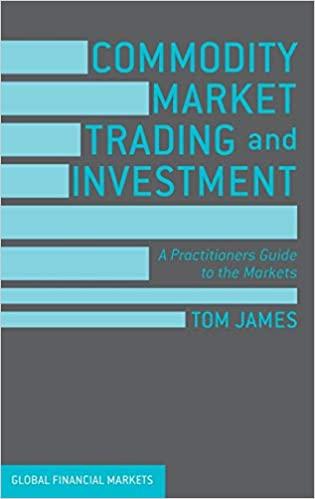Question
CASE 112 Local Finances and Property-Tax-Exempt Organizations Nonprofit organizations and governments are often exempt from payment of property taxes. The conditions and standards are not
CASE 112 Local Finances and Property-Tax-Exempt Organizations Nonprofit organizations and governments are often exempt from payment of property taxes. The conditions and standards are not the same for all states or even necessarily for all localities within a state, although state law defines the terms for exemption. Furthermore, not all types of nonprofit organizations receive the same exempt treatment. For instance, property owned by governments, churches, educational institutions, and hospitals may be exempt from property taxation, but property owned by other nonprofit organizations may be taxable. The state standards for qualifying as an exempt nonprofit organization are not always the same as those used by the federal government. Local governments that host major exempt organizations (for instance, large private universities or federal or state government facilities) are in a complex situation. On one hand, there can be considerable benefits in terms of economic impact and prestige associated with hosting the entity (Cambridge, Massachusetts, is proud of being the home of both Harvard University and the Massachusetts Institute of Technology, for instance). On the other hand, the exempt property owned by the institutions provides no tax base for use in providing police and fire protection, primary and secondary education, and other services to the community. When local governments that rely on their property taxes for the finance of government services face fiscal difficulty, their leaders look toward broadening the tax base as a source of revenue. Getting payments from financially large nonprofit organizations and entities of other governments looks attractive to many. It has been estimated that, nationwide, nonprofit organization exemptions reduced property tax collections by 10 percent, with higher shares in areas with particularly large nonprofit sectors. The discussions become particularly focused when the local government is financially stressed while large tax-exempt organizations it hosts appear prosperous. The case that follows deals with a dispute between Providence, Rhode Island, and Brown University over the amount that tax-exempt Brown would contribute to the city.
Consider These Questions
1. Why should nonprofit organizations be exempt from payment of local property taxes? Dont they benefit from local services just as much as proprietary businesses? For instance, why should a nonprofit hospital be exempt from the local property tax, while a similar proprietary hospital is taxed? Is the argument for exemption different for a state university compared with a similar private university?
2. If they are to be exempt, what standards would you establish for giving the exemption? Should all nonprofit organizations and government entities be in the same boat? What about state universities, state parks, and the state capitol building?
3. What would be the effect of having a large share of the total potential property tax base in a city owned by tax-exempt organizations? Would it mean lost property tax revenue or higher property taxes paid by taxable entities? Any idea how it might be possible to see whether the impact is higher tax paid by others or lower property tax revenue?
4. In some jurisdictions, there are provisions for exempt entities to make payments in lieu of taxes (PILOTs). Should the PILOT amount be voluntary, or should it be calculated according to a legislated formula? How should the PILOT be calculated? Should the PILOT approximate the amount of property tax payment on the property? If so, why bother exempting the property? Massachusetts legislators have been considering a proposal to levy a 2.5 percent annual assessment on assets of universities with endowments above $1 billion (the Harvard endowment is $35 billion) and Connecticut has been considering a tax on property owned by Yale University (both universities already make voluntary payments to host local governments). Would that be a sensible approach? Does your university make a PILOT to its host local governments? Do other nonprofits in your state make a PILOT payment?
5. State law typically establishes what entities qualify for local property tax exemption. That being the case, should the state government provide payments to local governments to compensate them for any lost revenue?
6. Would you judge the amount ultimately paid by Brown to be about right? What standard would you apply to decide? Providence and Brown: Bearing the Cost
Mikesell, John. Fiscal Administration (p. 567-568). Cengage Learning. Kindle Edition.
Step by Step Solution
There are 3 Steps involved in it
Step: 1

Get Instant Access to Expert-Tailored Solutions
See step-by-step solutions with expert insights and AI powered tools for academic success
Step: 2

Step: 3

Ace Your Homework with AI
Get the answers you need in no time with our AI-driven, step-by-step assistance
Get Started


